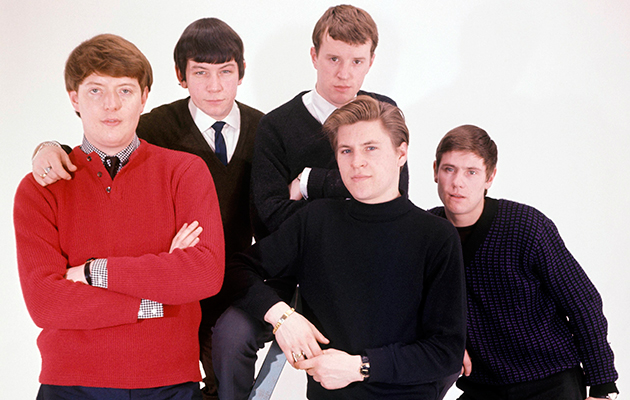STEEL: The words are what sold it for us. We could honestly identify with the sentiments of the song. We were all working-class Geordies, and Tyneside in the ’50s when we were all teenagers was a pretty grubby place: coal, steel, shipbuilding. Every building was black, when it rained there was a kind of black slime on the pavements. So we could really identify with the words. Once we got down to London at the end of ’63 that was our first experience of living in another city, then travelling to New York in ’64 was like a dream come true to us. That idea of social mobility had just become possible for working-class lads like us.
VALENTINE: It was pretty obvious that it worked. We were quite unanimous that it was a great song. It had biting lyrics that weren’t bubblegum, they had meaning and depth to them. It’s definitely a working-class background kind of song.
STEEL: We tried to avoid getting involved in mainstream pop songs. We thought it was a good hard-edged song – a dark story, like “Don’t Let Me Be Misunderstood” and “It’s My Life”. So it suited us perfectly.
BURDON: Back then we thought we were on a crusade. We thought we were bringing something special to people.
VALENTINE: The arrangements were left up to us. Everybody would chip in when we went into rehearsals and ran through the number. With everybody’s input it just grew from the original, basic idea. We were road-tested, well-oiled. We would run through it in a rehearsal room a few times and then we’d be ready.
BURDON: We recorded it at De Lane Lea studios, down in this basement in central London. It was Churchill’s old map room, one of his emergency rooms during the war. The recording was pretty much down the line. We were very sure of ourselves, we didn’t need much producing. Mickie Most has become this big legend, but he was learning on the job, really. I’m not doing him down, but he didn’t have to do that much with us. In the beginning, he’d say to Hilton, ‘Oh, you’ve messed up the guitar, you’ll all have to do it again.’ He didn’t even know that we could overdub! Chas would have to tell him.
VALENTINE: Mickie did very little. In the studio he just stood and listened while the engineer [Dave Siddle] did the work. He might occasionally suggest something, but back then he was not a hands-on producer.
STEEL: It was our first single after [keyboard player] Alan Price left. Eric and me had worked with Alan on and off since 1959, we were the core of The Animals, so it was a bit of a wrench, but at the same time it has to be said that Alan was a hard guy to get on with. There was a certain amount of relief.
VALENTINE: Oh, it was volatile – many, many ups and downs, a lot of arguments, going at each other hammer and tongs. We were working so hard, in each other’s pockets all the time with constant touring. It was fun but it took its toll. It made us tired and irritable. And there was still plenty more tension to go around after Alan left!
STEEL: We knew Dave Rowberry from way back. He slotted in very easily. He was a better musician, technically, than Alan, he was more sophisticated, so we moved on without a hitch. And we got on well with him.



